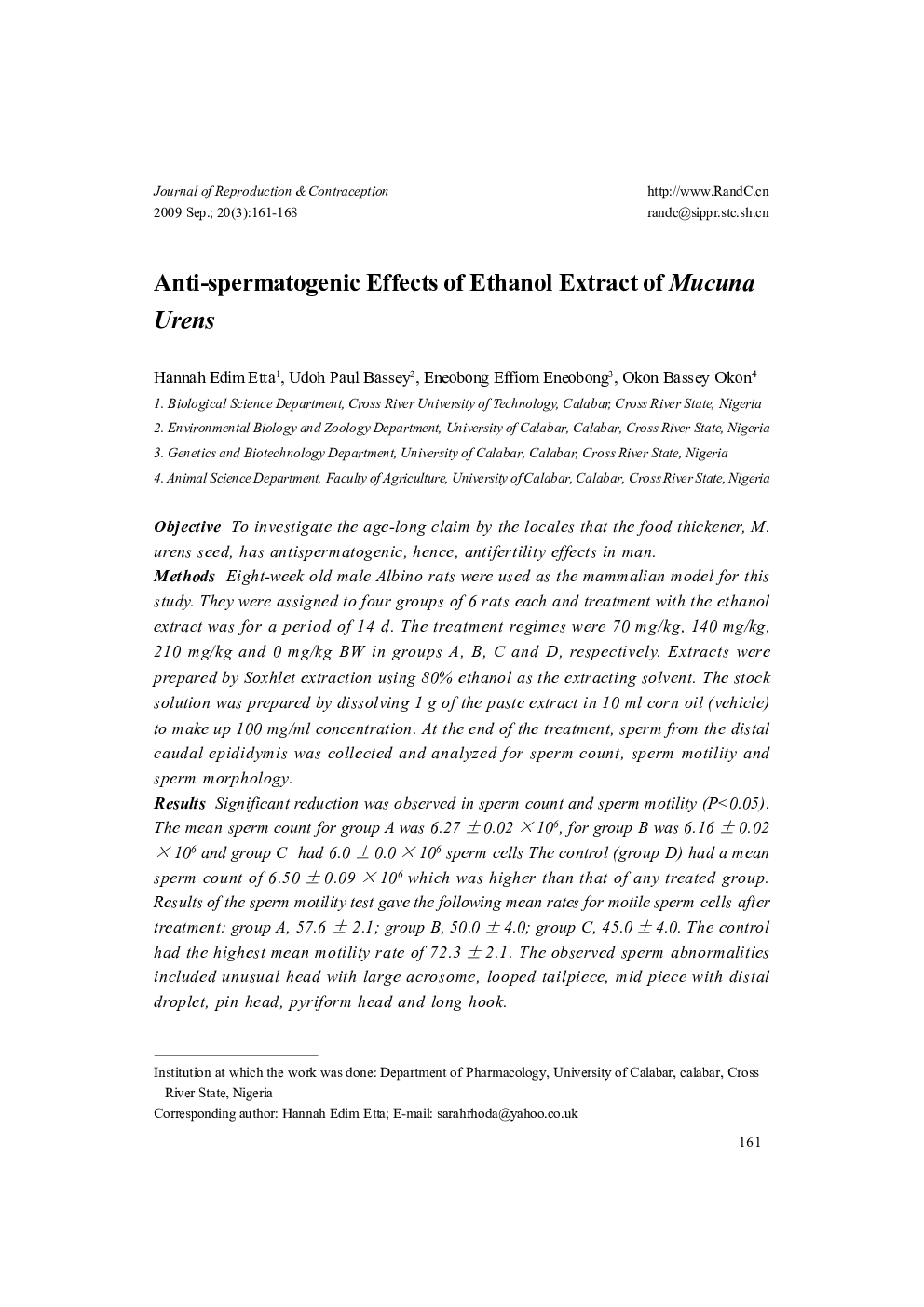| Article ID | Journal | Published Year | Pages | File Type |
|---|---|---|---|---|
| 3964032 | Journal of Reproduction and Contraception | 2009 | 8 Pages |
ObjectiveTo investigate the age-long claim by the locales that the food thickener, M. urens seed, has antispermatogenic, hence, antifertility effects in man.MethodsEight-week old male Albino rats were used as the mammalian model for this study. They were assigned to four groups of 6 rats each and treatment with the ethanol extract was for a period of 14 d. The treatment regimes were 70 mg/kg, 140 mg/kg, 210 mg/kg and 0 mg/kg BW in groups A, B, C and D, respectively. Extracts were prepared by Soxhlet extraction using 80% ethanol as the extracting solvent. The stock solution was prepared by dissolving 1 g of the paste extract in 10 ml corn oil (vehicle) to make up 100 mg/ml concentration. At the end of the treatment, sperm from the distal caudal epididymis was collected and analyzed for sperm count, sperm motility and sperm morphology.ResultsSignificant reduction was observed in sperm count and sperm motility (P<0.05). The mean sperm count for group A was 6.27 ± 0.02 × 106, for group B was 6.16 ± 0.02 × 106 and group C had 6.0 ± 0.0 × 106 sperm cells The control (group D) had a mean sperm count of 6.50 ± 0.09 × 106 which was higher than that of any treated group. Results of the sperm motility test gave the following mean rates for motile sperm cells after treatment: group A, 57.6 ± 2.1; group B, 50.0 ± 4.0; group C, 45.0 ± 4.0. The control had the highest mean motility rate of 72.3 ± 2.1. The observed sperm abnormalities included unusual head with large acrosome, looped tailpiece, mid piece with distal droplet, pin head, pyriform head and long hook.ConclusionThe anti-spermatogenic effects of the extract on the sperm in the Albino rat may lead to reduction of fertility.
